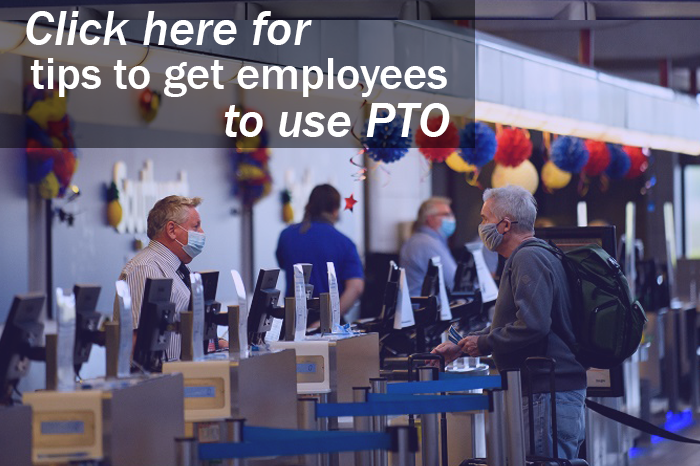More than one in 10 employees (13%) say they won’t take time off work until the pandemic is over, presenting a significant challenge for employers as they witness soaring rates of employee burnout and depression.
The new data from software firm Zapier finds that hesitation to take time off may be fueled by a few concerns. A third of employees feel it’s a waste to take time off due to travel restrictions, and just under a quarter say it’s difficult to justify time off when they’re working from home. Meanwhile, many employees are working more hours as a result of the pandemic, while others are nervous to take time off in a volatile job market.
The data indicates employers, and HR leaders, have significant work to do in nudging employees to take time off.
While the pandemic is undoubtedly taking a toll on employees’ mental health–with rising depression and burnout rates–not taking time off work to unwind is only exacerbating those issues, experts say.
“Our ability to travel [and not being able to] interact with others plays into depression as well,” Chuck Columbus, CEO of the American Health Policy Institute, said recently during a webinar discussing rocketing depression rates.
Related: Depression risk is soaring for workers. How can HR help?
 Carly Moulton, senior communications specialist at Zapier, says it’s important for employees to take time off, especially during the pandemic, and employers are wise to encourage them. “Even if [employees] can’t go anywhere, it’s still important to take time off and recharge. Many studies indicate the benefits to taking time off include increased productivity, creativity and performance, and a number of mental health benefits.”
Carly Moulton, senior communications specialist at Zapier, says it’s important for employees to take time off, especially during the pandemic, and employers are wise to encourage them. “Even if [employees] can’t go anywhere, it’s still important to take time off and recharge. Many studies indicate the benefits to taking time off include increased productivity, creativity and performance, and a number of mental health benefits.”
Employers can cite the mental health benefits of taking time off, and leaders should lead by example, even while businesses are still operating remotely. “Leaders can model by taking their own vacations as well as communicate existing company policies and how they are or are not changing in light of COVID-19 and business needs, continuity and financial liability,” LuAnn Heinen, vice president at the Business Group on Health, recently told HRE.
Related: What to do when workers won’t take their vacation
HR leaders can take varying approaches to create more motivation for employees to use their paid time off while working virtually. They may want to consider allowing employees to carry over time off to next year, cash out vacation days or implement a leave-donation program.
“People shouldn’t be working to the point of exhaustion,” Moulton says. “Leaders should take extra care to exercise empathy during this time and set an example by taking time off and encouraging others to do the same.”
Related: HR leaders: Give workers ‘permission’ to disconnect

